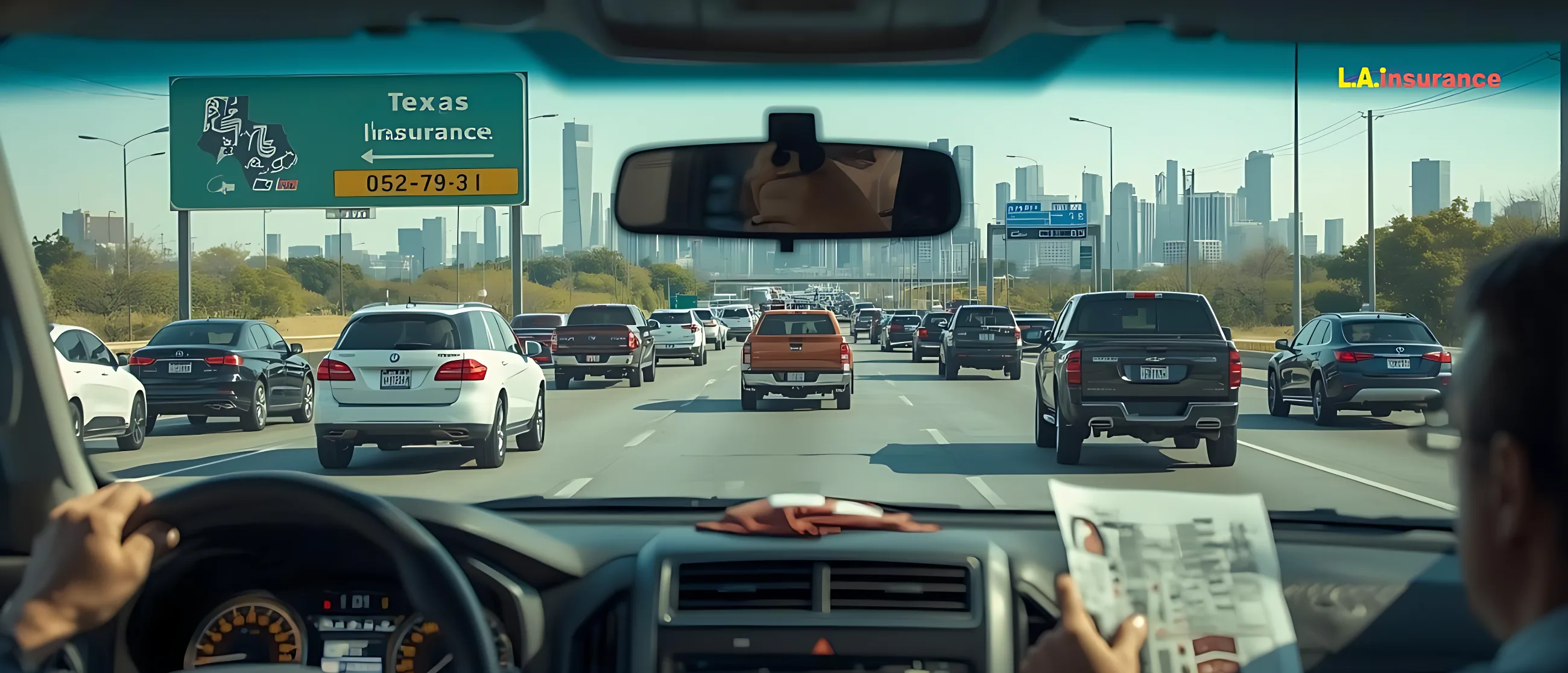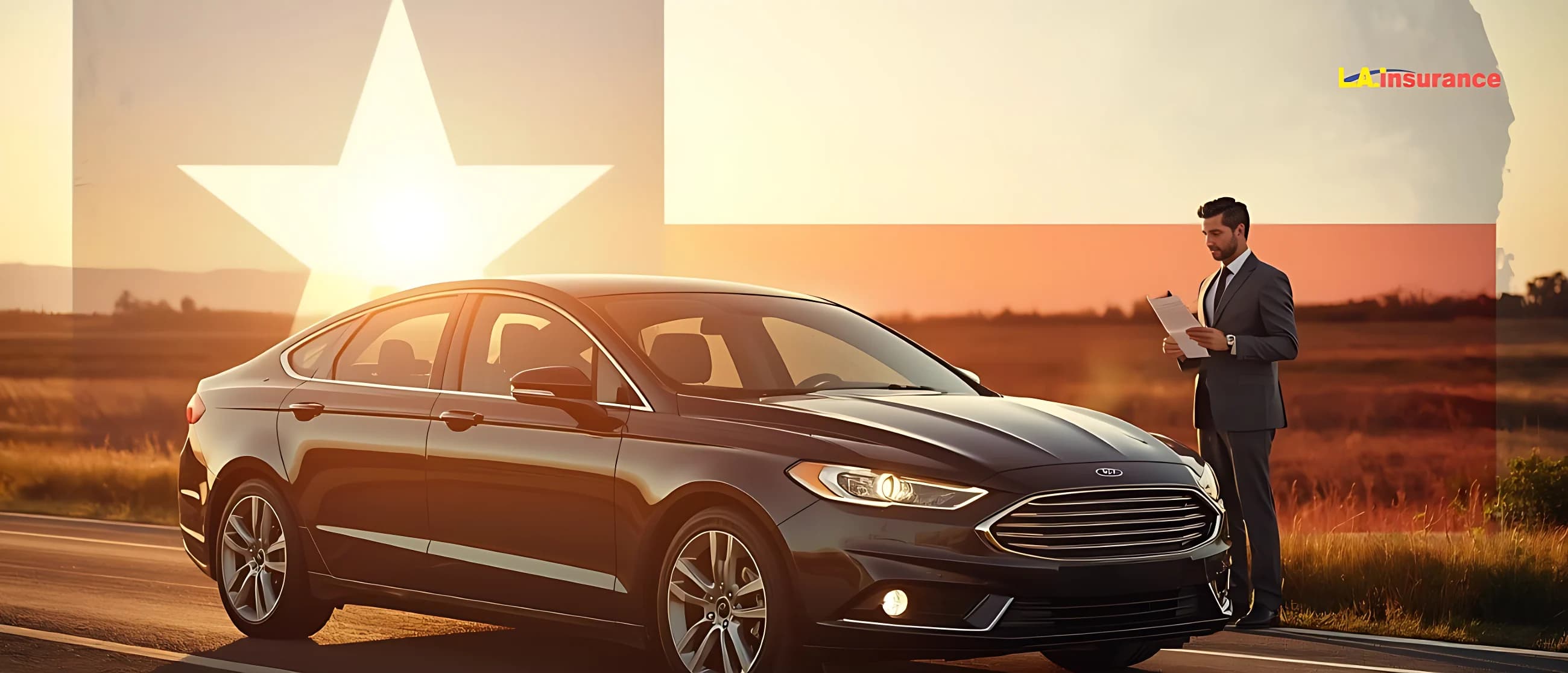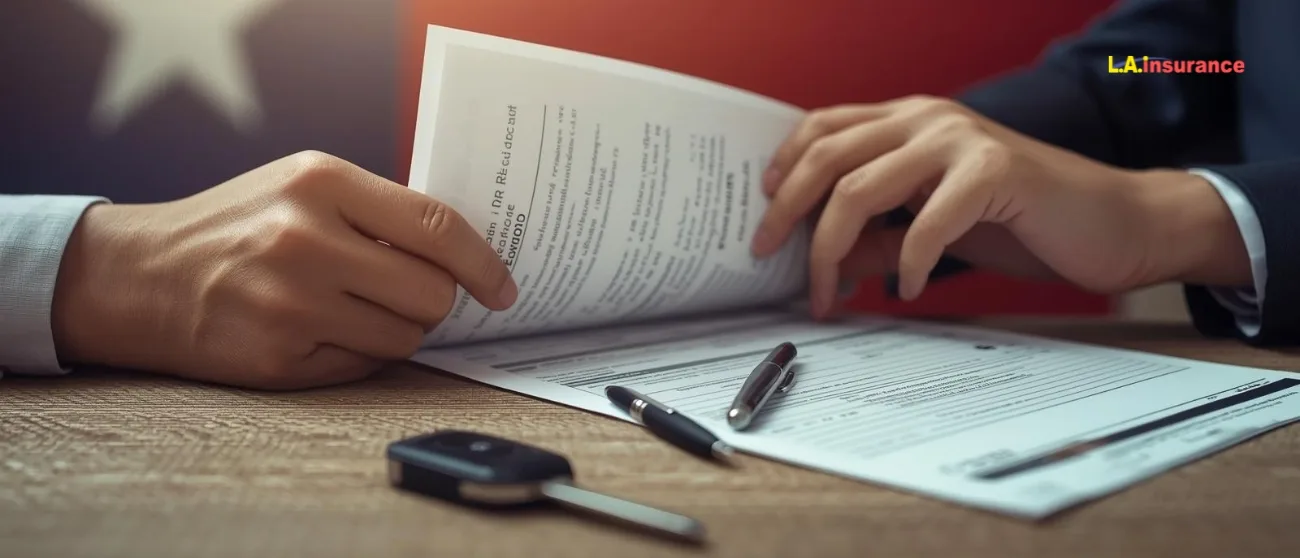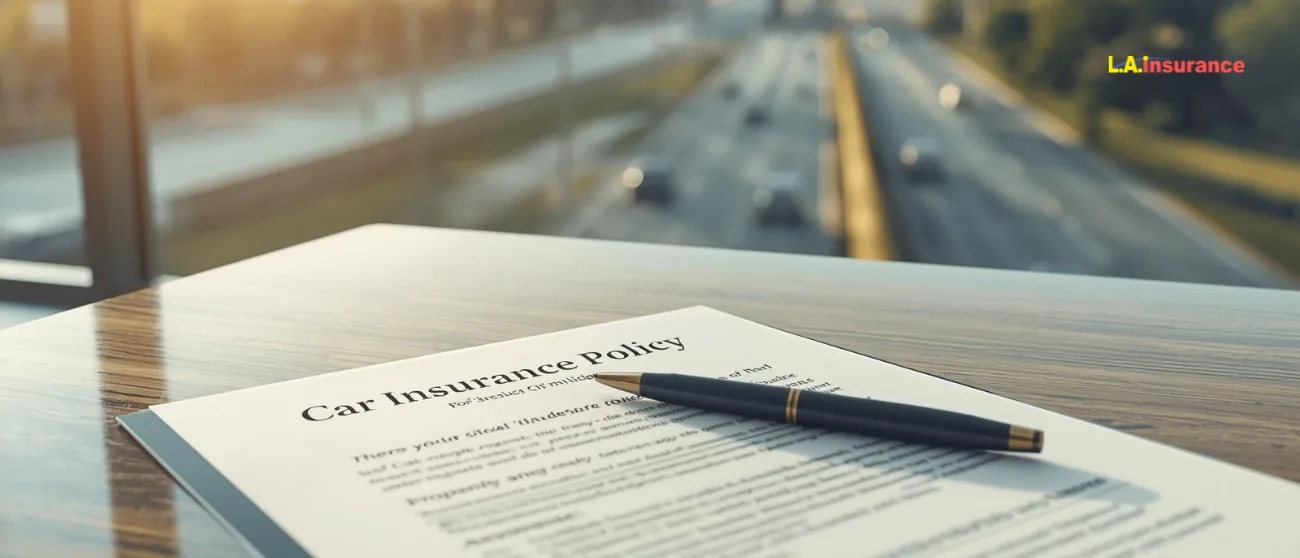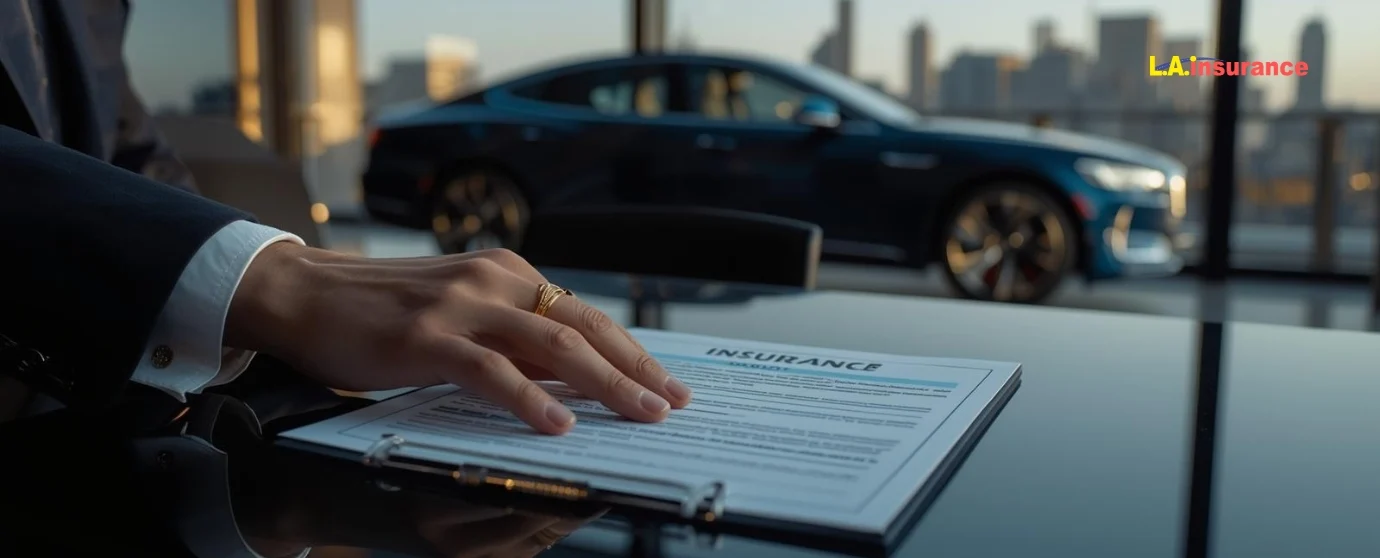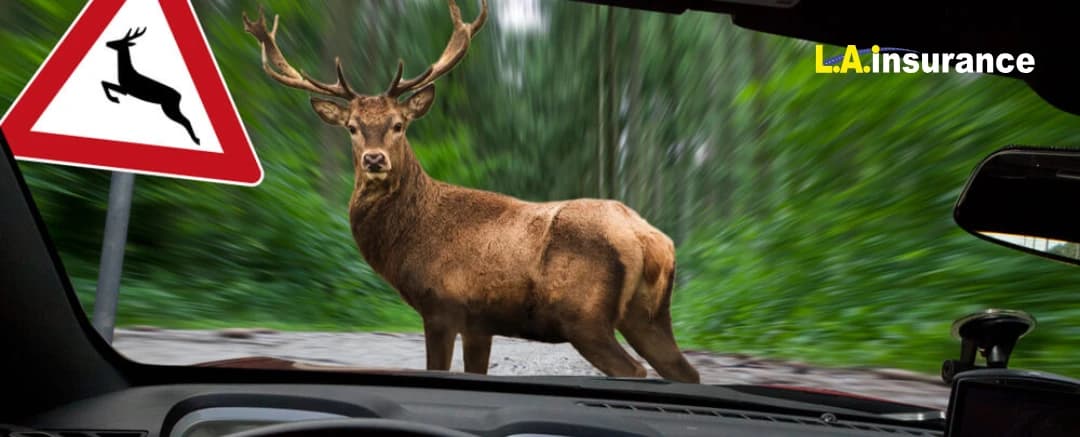
Publish Date: 20-07-2025
Auto Insurance
Last Updated: 15-12-2025
Is Hitting a Deer Comprehensive or Collision?
If you often drive through areas prone to deer-vehicle collisions, you might wonder whether hitting a deer is covered under collision or comprehensive insurance.
A sudden dash from a deer can wreck your vehicle and shake your nerves. While such accidents feel entirely unpredictable, insurance policies have clear guidelines for them.
This article mainly focuses on the type of insurance that covers deer-related accidents. Also, it covers the differences between collision and comprehensive insurance, the likelihood of hitting a deer, steps to take after such an incident, and preventive measures to avoid deer-related crashes.
If You Hit a Deer, Is It a Collision or Comprehensive?
When you hit a deer or another animal, it falls under comprehensive coverage, not collision.
As you probably know, anything related to a collision is covered under collision insurance, while comprehensive insurance is known as “other than collision” insurance. This means it isn’t supposed to cover any collision-related damages.
So, why on earth are animal collisions (e.g., deer) covered by a comprehensive policy?
It might sound odd, but that’s how car insurance companies label these situations. The logic behind this is that a deer accident is unpredictable. It’s not your fault, which is why it doesn’t fall under “collision.”
Keep a note here. If you experience a deer-vehicle collision (DVC) and file a claim, you’ll have to pay the comprehensive deductible.
On the other hand, if you swerve to avoid hitting a deer and get into an accident or collide with another object, that would fall under collision insurance. It’s always recommended not to swerve your vehicle if you suddenly confront a deer.
Remember, swerving could lead to serious accidents by causing you to lose control of your vehicle. Instead, firmly brake and try to stay in your lane.
Now, let’s explain the important details of the query you’ve raised: why hitting a deer falls under comprehensive coverage and the difference between collision and comprehensive insurance. This should help clarify if you have any doubts.
Related Article: Does Liability Insurance Cover Hitting a Deer?
Why Are Deer-Vehicle Collisions (DVCs) Covered by Comprehensive Instead of Collision Insurance?
A deer accident can feel like a crash. However, it’s not treated like one. That’s because hitting an animal is different than hitting a vehicle or tree. It’s sudden. It’s random.
Comprehensive is designed for unexpected, uncontrolled events – things you don’t cause. Meanwhile, collision coverage applies when your vehicle strikes another object which is caused by you or someone else.
In the case of a comprehensive policy, insurers don’t seek for at-fault party. The same happens in deer accidents. There’s no one to blame there. Not the innocent deer or the driver.
In contrast, filing collision insurance means, there must be an at-fault party. The insurer will blame that party and cover the damage. In this case, the car insurance rates also increase drastically for at-fault drivers. However, the rate stays almost the same after comprehensive claims.
Here's why deer-vehicle collision is considered under comprehensive policy not collision:
- Wildlife movements are unpredictable and often unpreventable.
- The driver is usually not at fault for hitting a deer.
- Comprehensive coverage includes damage from animals, vandalism, fire, theft, and natural disasters.
- It covers “acts of nature”, where human error isn’t involved.
- It simply protects your vehicle insurance history from at-fault accident penalties such as increased auto insurance rates.
If you often drive in an area where deer crash happens too often, you should make sure you have the right coverage. You can contact L.A. Insurance and choose our affordable full-coverage auto insurance policy. It comprises liability, comprehensive, and collision insurance which fully protects you against almost any risk on and off the road. Speak to one of our friendly agents for a cheap car insurance quote or dial (800) 893-9393.
Difference Between Comprehensive Vs. Collision Insurance
Comprehensive and collision insurance aren’t mandatory like liability insurance. But they are very crucial to protect your vehicle from unforeseen incidents.
Comprehensive car insurance helps when something unexpected hits your vehicle but it’s not another car. It includes deer accidents (animal collisions), theft, vandalism, or even falling a tree.
On the flip side, collision insurance coverage covers damage when your vehicle hits another car, fences, poles, guardrails, buildings or walls, trees, or other stationary objects. It works whether you hit something or something hits you.
Here’s a side-by-side to make things even easier:
Coverage Type | Comprehensive Car Insurance | Collision Insurance |
What It Covers | Damage from wildlife, theft, fire, weather, vandalism, or falling objects | Damage from car accidents, guard rail, or tree collisions |
At-Fault Coverage | Doesn’t follow a fault-based insurance system | Covers you even when you’re at fault |
Typical Triggers | Hitting a deer, hailstorm, or your car getting keyed | You hit another vehicle, or reverse into a pole |
When It Applies | Parked or moving when damage isn’t caused by a crash | When your car collides with anything even in a single-vehicle accident |
Required by State? | No, optional | No, optional |
Required by Lenders? | Yes, in most cases | Yes, in most cases |
Deductible Applies | Yes | Yes |
Main Benefits | Covers random events out of your control | Covers crash damage, even if it’s your fault |
Learn more: What is the difference between collision and comprehensive insurance?
How Likely Are You to Hit a Deer?
Deer collisions aren’t rare. They are quite prevalent in many parts of the United States. Particularly, during fall, they turn roads into risky zones.
According to CNN, over 2.1 million deer-vehicle collisions happen every year in the U.S. These crashes cause $10 billion in economic losses, 440 deaths, and 59,000 human injuries.
Research indicates that deer-related accidents are most common during specific times of the year. Deer become particularly active during mating season, which spans from October to December. They are most likely to roam during dawn and dusk, often near roadsides. These low-visibility hours make it essential for drivers to remain alert and cautious to avoid collisions.
As per State Farm’s 2023 report, your chance of hitting a deer or other animal depends on where you live or drive through. Some states are far riskier than others.
Here's a quick look at the top 5 high-risk states for deer accidents:
State | Likelihood of Collision | 1 in Every…Drivers |
West Virginia | Highest | 40 |
Montana | Very High | 54 |
Michigan | High | 59 |
Pennsylvania | High | 61 |
Wisconsin | High | 63 |
Pennsylvania leads in deer-related accident claims, with over 150,000 reported cases, followed by Michigan, which reports around 131,000. If you’re driving in these states, especially in rural or highway areas, keep an eye out.
What Should I Do After Deer-Vehicle Collision?
- First, stay calm and move your vehicle to a safe-to-drive spot. Off the road if possible.
- Turn on your hazard lights to alert traffic.
- Do not approach the deer or other animals as they may react aggressively.
- Check yourself and your passengers for injury. If anyone is hurt, call 911 right away.
- Contact the police. A police report helps with your insurance claim and may be legally required.
- Take clear photos of the damages, hood, roadside, and surroundings when it is safe to do so.
- Note the time, location, and direction the deer came from.
- Only if it’s safe, check if the car is drivable. Otherwise, call roadside assistance.
- Then, file a claim with your insurance company as soon as possible.
- Have your insurance policy number ready and ask about your deductible.
- Keep in mind that the quicker you act, the faster the recovery.
How to Prevent Hitting a Deer
To avoid any future deer accidents, keep in mind the following tips:
- Stay alert at dawn and dusk because this is when deer are most active.
- Use high beams at night in rural areas if there’s no oncoming traffic.
- Slow down in deer-crossing zones.
- Scan both sides of the road, especially near woods and fields.
- Never swerve to avoid hitting a deer or other animal.
- If you see one deer, expect more. Usually, deer travel in groups.
- Honk your horn in short bursts if you see a deer ahead.
- Avoid distracted driving. Stay off your phone and keep your eyes on the road.
- Drive slower in fall and winter if you’re in high-risk states like West Virginia, Montana, Michigan, or Pennsylvania.
- Keep a safe distance from the car ahead in case they brake suddenly.
Is Hitting a Deer Comprehensive or Collision: The Bottom Line
Now we’ve come to the conclusion: Is hitting a deer collision or comprehensive? The right answer is comprehensive coverage, not collision. Collision coverage can help if you swerve to avoid hitting a deer and end up in an accident. However, it doesn’t directly assist with any kind of animal collisions, including deer. For this, you’ll always need comprehensive protection which is designed to cover unpredictable situations beyond your control, such as deer-vehicle accidents. Hope this clears up any confusion.
If you encounter any issues with comprehensive claims for deer-related crashes in Michigan or any other state, contact L.A. Insurance. You can call (800) 893-9393 or reach out to an insurance agent online. L.A. Insurance, the most affordable insurance agency based in Michigan, has been serving U.S. citizens for over 33 years. We can help you if you need protection from any road threats including deer-vehicle collisions. We’ve more than 200 regional offices across the country including Arizona, Colorado, Florida, Georgia, Texas, and Nevada.
Related Readings:
Frequently Asked Questions (FAQs)
Is hitting a deer considered an act of God?
No, hitting a deer isn’t technically considered an act of God. Generally, acts of God refer to incidents caused by natural forces, such as floods, storms, earthquakes, etc. However, insurance companies classify deer-vehicle collisions under this category, and any coverage for it falls under a comprehensive policy. This is because deer-vehicle collisions are unpredictable, beyond the driver’s control, and no one's fault.
Does car insurance go up after hitting a deer?
Usually not. Since deer accidents are no-fault, many car insurance companies don’t increase your insurance premium. Other than that, a typical accident can raise car insurance rates if it’s at fault, you’ll likely face up to a 42% increase. If this happens, it’s best to follow strategies to lower your car insurance rates.
Does hitting a deer count as a traffic accident?
Yes. Insurance may classify it as a traffic accident, but it’s typically treated as a comprehensive claim, not a collision.
What happens if you hit a deer and don't call the police?
If you hit a deer, it’s not always legally mandatory to call the police. But some states might recommend it. For a fast claim process, a police report could be very useful. Without one, some insurers might delay or even deny your car insurance claim for deer-related damages.
How long do you have to report hitting a deer to insurance?
Most insurance policies require filing a claim as fast as possible, typically within 24 hours to 72 hours after the deer accident occurs.
Editorial Disclaimer
The information provided on this blog is for general informational purposes only and does not constitute professional insurance, legal, or financial advice. Coverage and rates are subject to individual eligibility, underwriting guidelines, and state availability. For specific questions regarding your policy or to get an accurate quote, please contact a licensed L.A. Insurance agent directly. We're an independent agency and not a direct insurance carrier. For more information on how we operate and handle your data, please see our Terms and Conditions and Privacy Policy.
Tag :
Auto insurance
Comercial Auto
